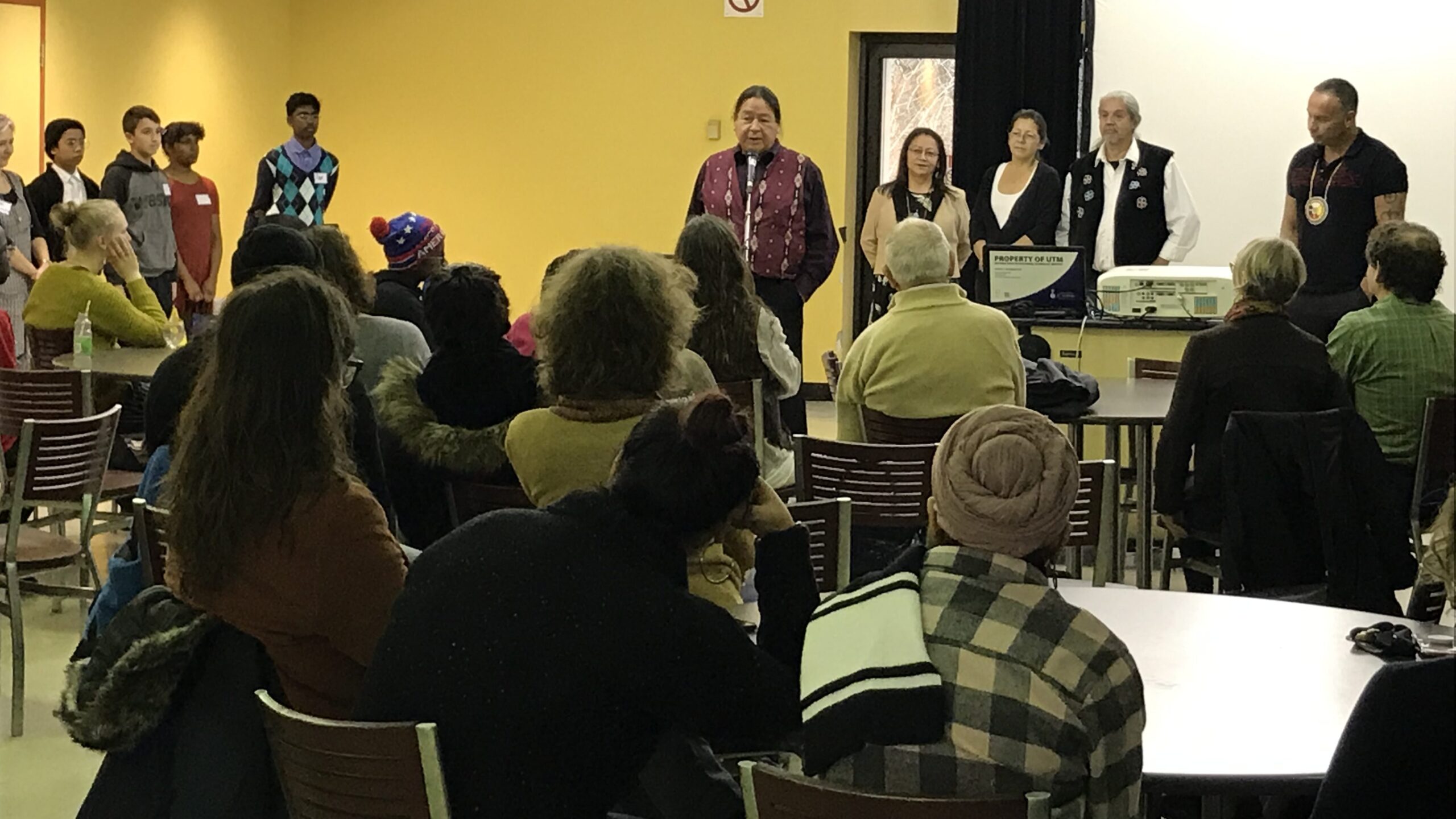Profile:
Community Youth Mentorship Initiatives, Indigenous Spirit Journey
Community Youth Mentorship Initiatives, engage students as volunteer mentors for youth on-campus and in the community through partnerships with local organizations and school boards. An example of a Youth Mentorship program is the Indigenous Spirit Journey. Over a 16- week program, student volunteers assist youth in experiential land-based activities aimed at: developing strong community leadership skills, fostering an understanding for inter-cultural inclusion, and a deeper understanding of individuals roles in their communities. The curriculum was founded on Indigenous philosophical cultural teachings, and is taught by Indigenous Elders and Knowledge Keepers at Riverwood Conservancy.

Program Details
Instructor / Program Coordinator(s):
Alysha Ferguson, Manager, Community Engaged Learning, Centre for Student Engagement (CSE), University of Toronto Mississauga
Profile(s):
External Partners Faculty & Staff Students
Division:
University of Toronto Mississauga
Benefits to Students:
By participating in Community Youth Mentorship Initiatives, students are mentors and share their knowledge as post-secondary students, while gaining valuable skills by learning about the issues youth face and supporting youth to overcome these challenges. In the Indigenous Spirit Journey specifically, mentors explore and contribute to the traditional indigenous teachings from the Indigenous Elders and Knowledge Keepers.
Benefits to External Partners and the Community:
By partnering on Community Youth Mentorship Initiatives, community organizations are able to engage youth from their organization in a rich mentorship program, focused on pathways to post-secondary and exploration of self within the curriculum. Riverwood Conservancy, The Indigenous Network and the Catholic District School Board work alongside the university to co-create the Indigenous Spirit Journey as each group provides knowledge, training and innovation for the program based on each partner’s short- and long-term goals.
Benefits to the University:
The Centre for Student Engagement works alongside the community to develop unique mentorship curriculum for each partner to ensure the program aligns with the needs for UTM student mentors and youth mentees. This partnership allows the Centre for Student Engagement to provide opportunities for youth to explore pathways to post-secondary and encourages UTM students to connect their curricular learning with the co-curricular mentorship programs.
Information for Interested Students:
Visit the U of T Mississauga’s Youth Mentoring page to learn more about various mentorship opportunities, including the Indigenous Spirit Journey.
Advice for Faculty and Staff Interested in Creating a Similar Experiential Learning Opportunity:
In the development of mentorship programs within the community, it is important as faculty and staff to best understand the scope of the program as mentorship programs can change based on the age group and themed outcomes for all participants. It is also important to established timed requirements for mentors, locations of the program and assess risk and liability to ensure youth, organizations, UofT students and UofT policies are outlined should any issues arise for all parties involved.
Students learning from Indigenous Elders and Knowledge Keepers at Riverwood Conservancy
Details
Partnership Based
Co-Curricular
Unpaid
